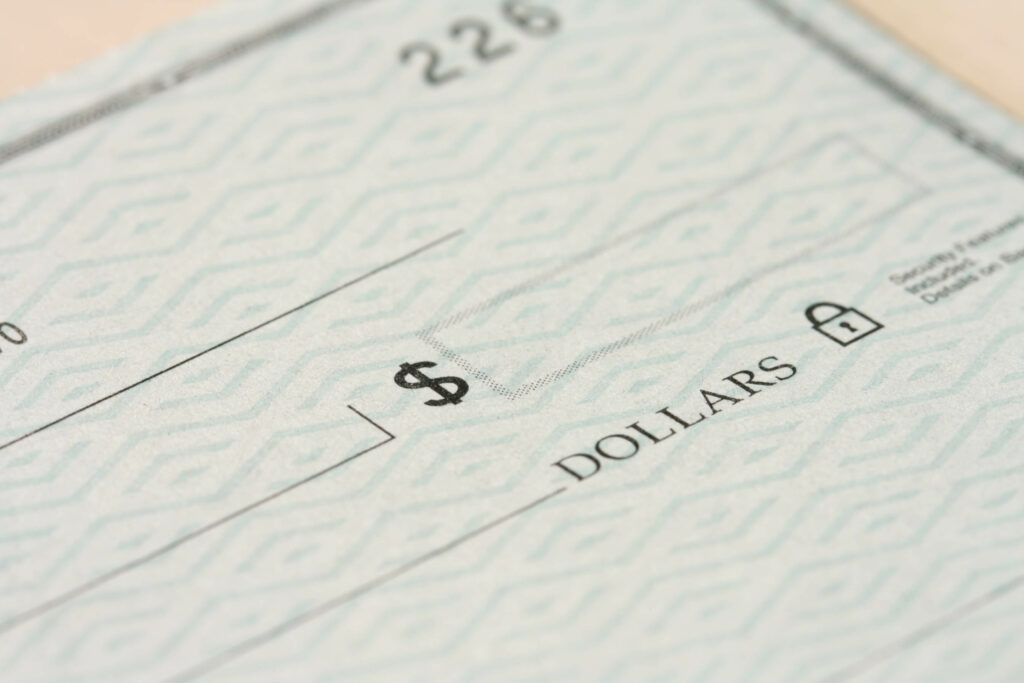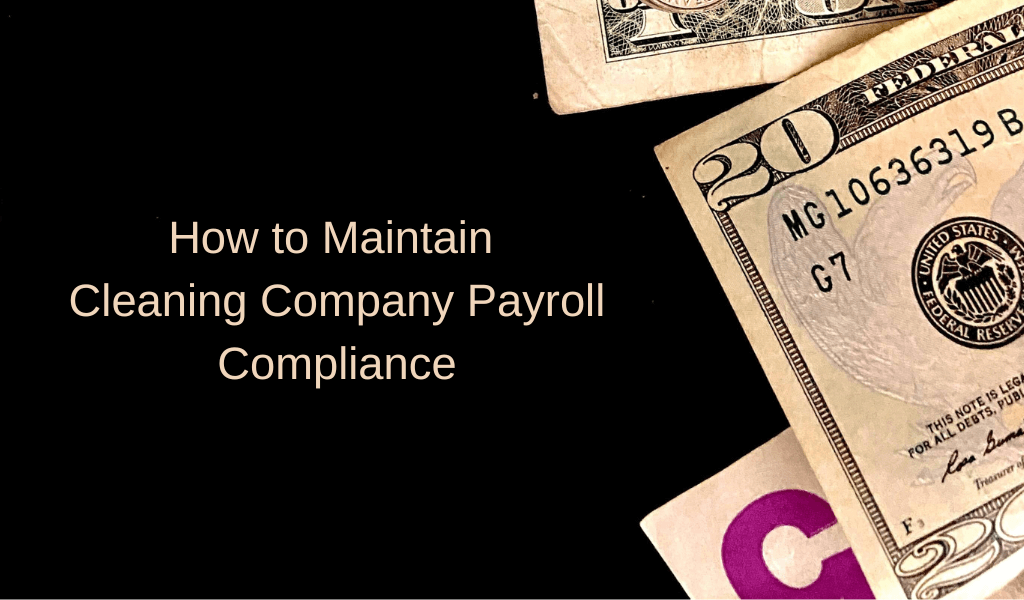Don’t assume your commercial cleaning company payroll is in compliance with the law. Here’s how you can make sure you’re doing the right thing.
As a business, there are rules and regulations you need to follow. State labor laws are one example, as are business taxes and liability insurance. A critical area in business compliance is your commercial cleaning company payroll.
Your cleaning company payroll is linked to several state and federal regulations, including taxation, labor requirements, privacy, record-keeping, and more. Of course, that doesn’t even count that your employees rely on you to run the payroll correctly.
It can feel like a lot to take in, especially when you don’t have an accounting degree. But it’s good to at least familiarize yourself with the regulations and steps around compliance.
Make your cleaning business more organized, efficient, and profitable. Schedule a free call with Janitorial Manager to learn how mobile-friendly scheduling software can help you streamline your operation like never before.

The basics of commercial cleaning company payroll compliance
First, it’s helpful to know what’s involved in your cleaning company payroll compliance. There’s a lot to keep track of beyond your team’s hours and hourly pay. In fact, compliance starts on the very first shift. Here is some of the paperwork you’ll need to include and track as part of your compliance:
- W-2s for employees and 1099s for contractors
- W-4, also known as the employee’s tax withholding certificate
- I-9, also known as employment eligibility verification
- Check or direct deposit information
In addition to keeping and submitting records for your employees or contractors, compliance may also include employee withholdings, business payments, and record-keeping, such as:
- Federal income tax withholdings
- State and local income tax withholdings
- Social Security taxes
- Worker’s compensation
- Temporary disability insurance
- Form 941, quarterly reports of federal wages, withheld taxes, and employer’s portion of Social Security
- Form 940, annual report of wages, tax liabilities, and payments
- Wage garnishments for child support or other legal obligations
- Overtime reporting/payments
- Any benefit payments, such as health insurance or 401k
- Properly tracking schedules and hours
That seems like a lot, and it can be, certainly. Luckily, there are plenty of third-party solutions that can help you and make the work easier. Even so, knowing what goes into your cleaning company payroll compliance and record-keeping is essential.
Now the question is: “How do you stay in compliance?”
Keeping your company compliant in 5 steps
1. Proper classification. One of the first steps in maintaining your cleaning company payroll compliance is classifying your employees or contractors correctly. With employees, you need to withhold certain taxes, while contractors pay their own taxes. For your business, there are pros and cons to employees vs. contractors. In both cases, however, make sure your people are classified properly. The IRS can levy significant penalties and fines if they determine that someone classified as a contractor is really an employee.
2. Understand your tax obligations. Another factor in maintaining compliance is determining which government entities you need to interact with. Every employer will have federal regulations to follow, and most employers will also have state laws to manage. However, there are a small number of U.S. states that don’t collect a state income tax. In addition, you may also need to pay local taxes.
3. Run payroll properly. When it comes to your day-to-day duties, the basis on which all your other payroll compliance sits is in proper timekeeping. Without proper timekeeping, it’s easy to run afoul of laws and regulations. That might include employees working off the clock, adjusting times for employees who forget to clock out, or tracking and paying overtime. With software like Janitorial Manager that can automatically clock your team in and out, this isn’t as much of a worry.
4. Keep withholdings in a separate account. You aren’t required to have a separate bank account for tax and other withholdings. However, it can be helpful when it comes time to pay your cleaning company payroll taxes. If they’re separate from your regular business account, you never need to worry that the money won’t be there. Especially since there are often penalties for late payments, it’s good for your business to ensure everything is paid on time.
5. Put it on your calendar. Again, because there are so many different dates and entities involved in payroll compliance, it’s beneficial to sit down and plug every due date into your calendar. Even better, set alerts for a few days or even a week ahead of time.
Again, there are plenty of third-party companies such as ADP or Paychex that can help you with all of this. That said, it’s important to know the details around running your commercial cleaning business, and the more you know about cleaning company payroll and compliance, the better off you are.
Take advantage of the value Janitorial Manager can bring to your cleaning operation to streamline your processes like never before. Learn more today with a discovery call and find out how to make your cleaning operation more efficient and cost effective!

